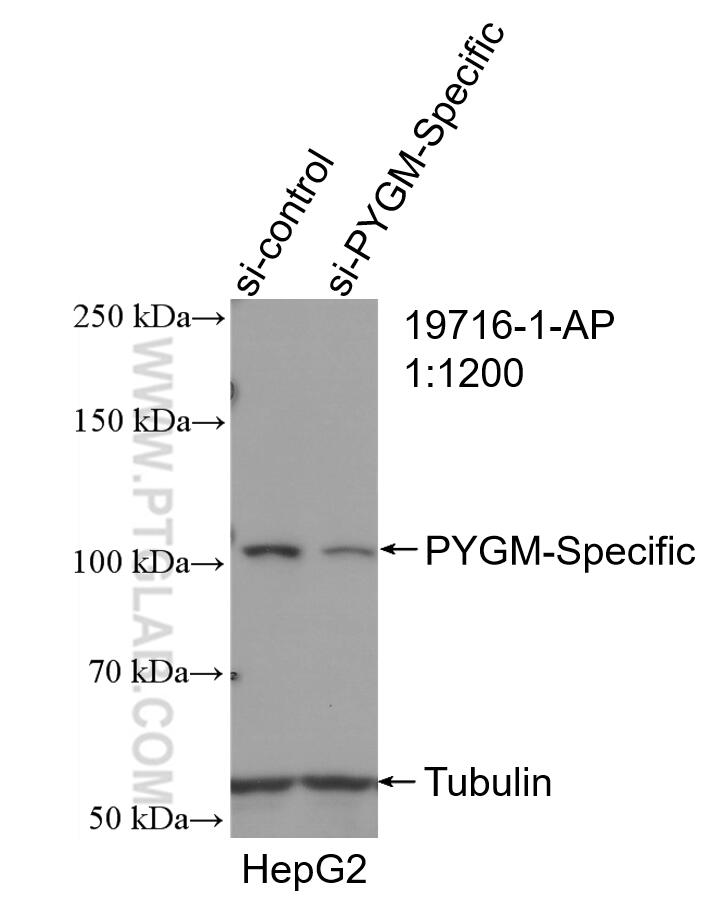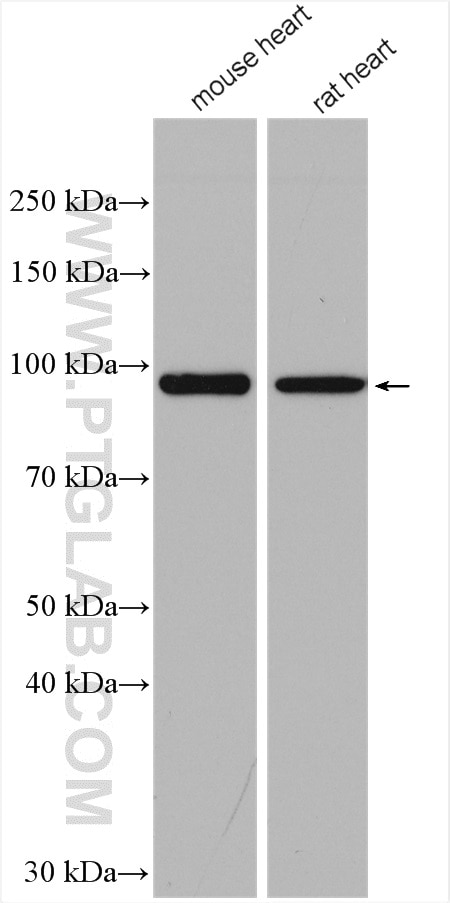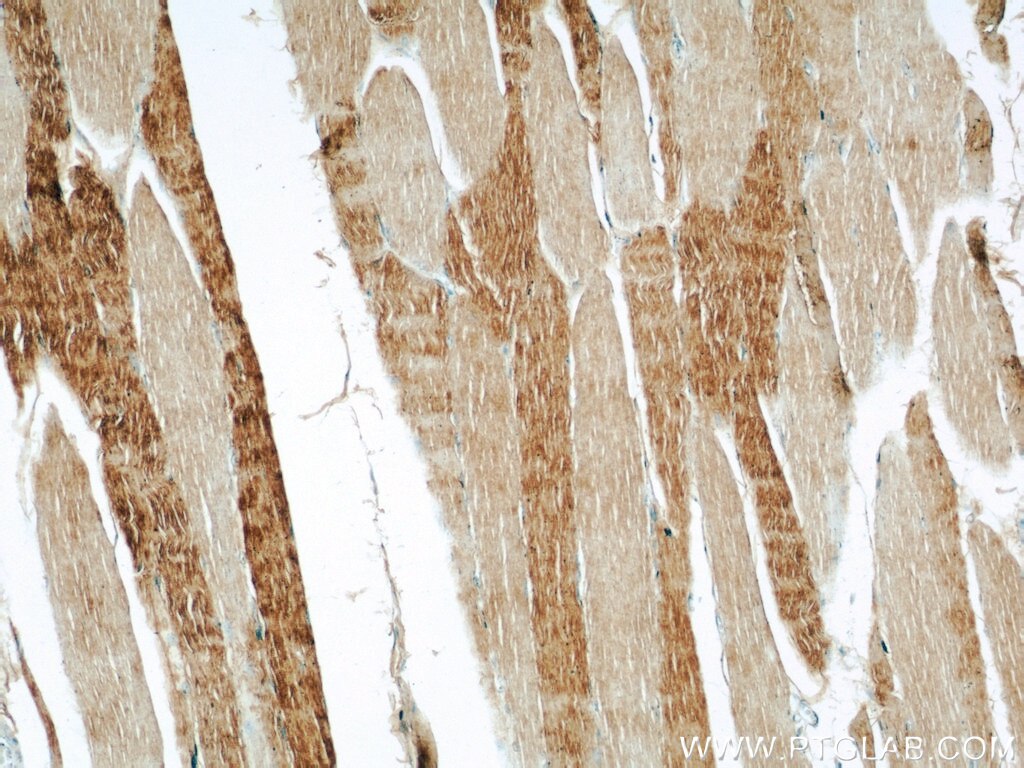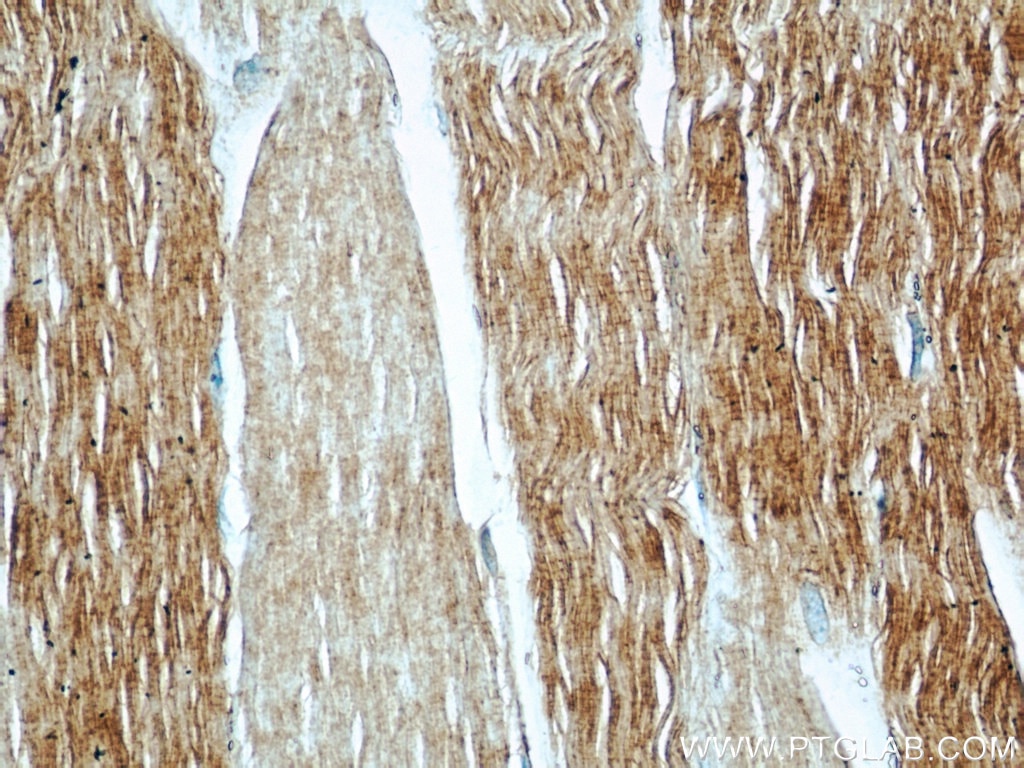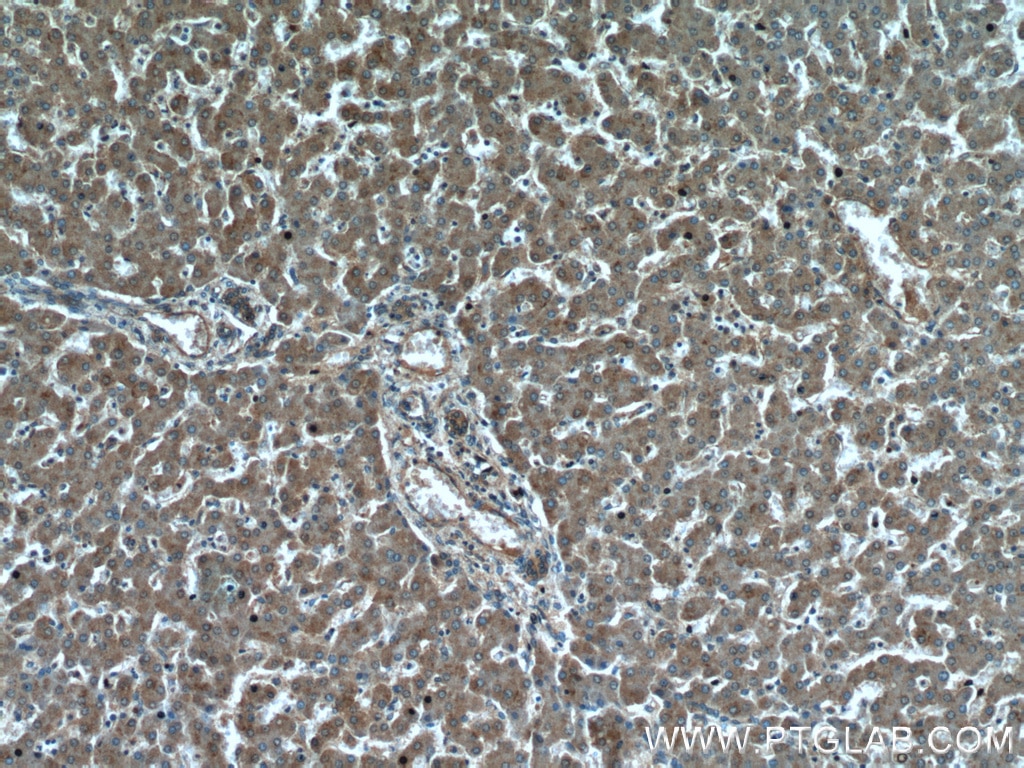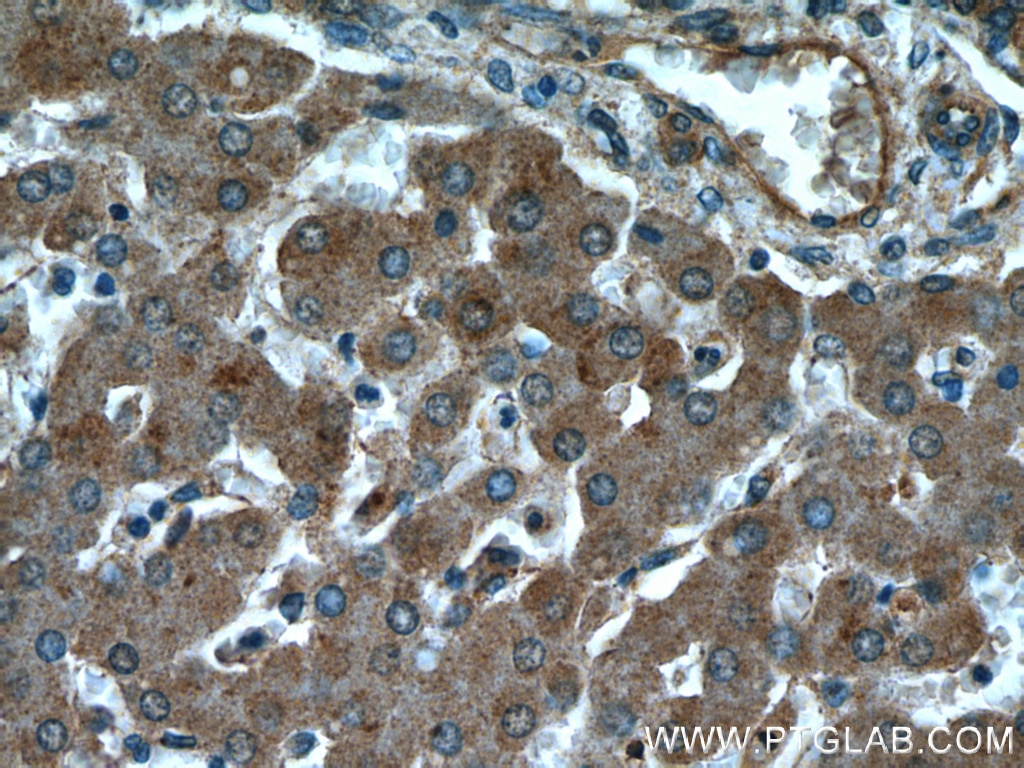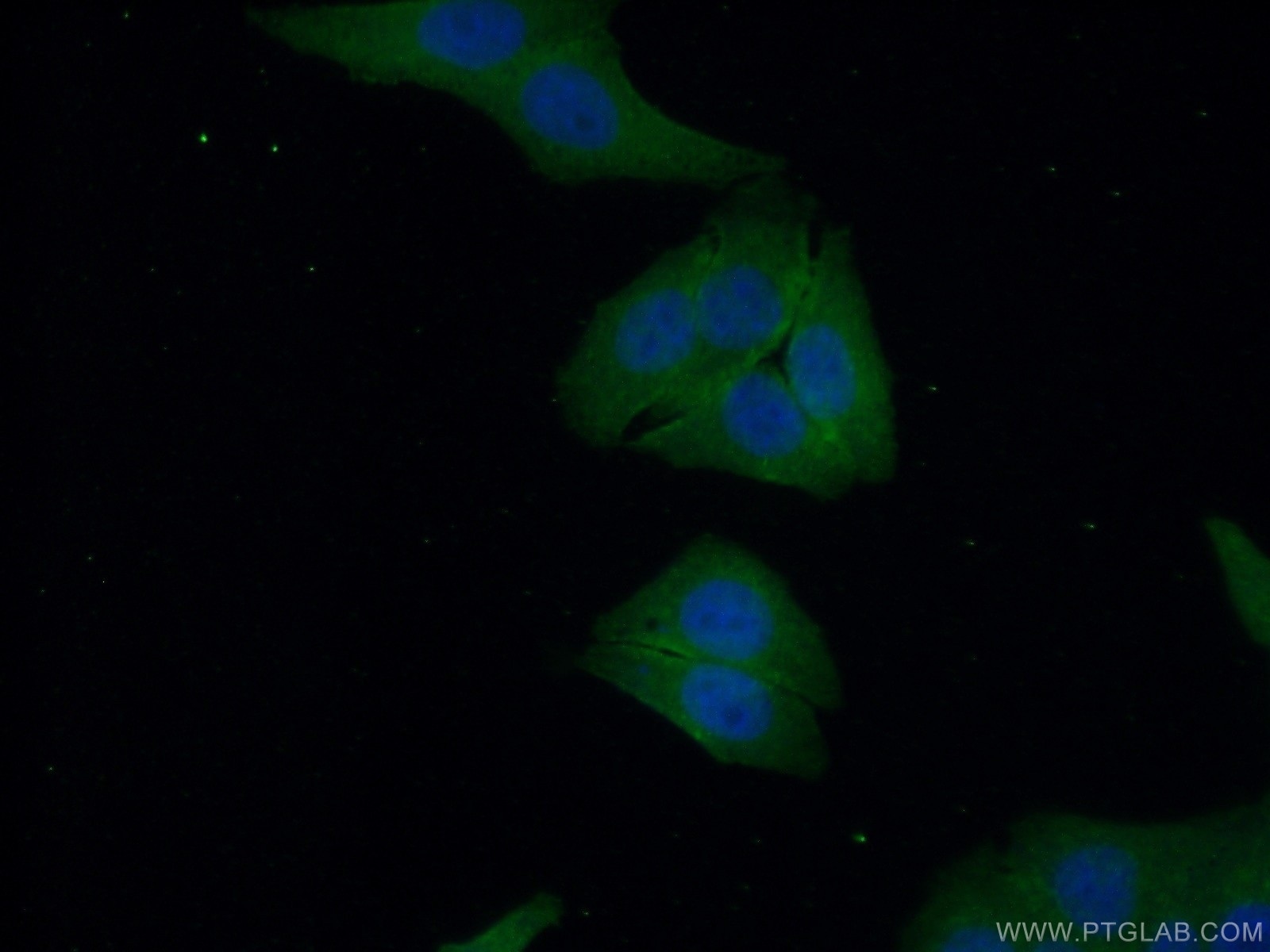- Featured Product
- KD/KO Validated
PYGM-Specific Polyklonaler Antikörper
PYGM-Specific Polyklonal Antikörper für IF, IHC, WB,ELISA
Wirt / Isotyp
Kaninchen / IgG
Getestete Reaktivität
human, Maus, Ratte
Anwendung
WB, IHC, IF, ELISA
Konjugation
Unkonjugiert
Kat-Nr. : 19716-1-AP
Synonyme
Galerie der Validierungsdaten
Geprüfte Anwendungen
| Erfolgreiche Detektion in WB | Mausherzgewebe, rat heart |
| Erfolgreiche Detektion in IHC | humanes Skelettmuskelgewebe, humanes Lebergewebe Hinweis: Antigendemaskierung mit TE-Puffer pH 9,0 empfohlen. (*) Wahlweise kann die Antigendemaskierung auch mit Citratpuffer pH 6,0 erfolgen. |
| Erfolgreiche Detektion in IF | HepG2-Zellen |
Empfohlene Verdünnung
| Anwendung | Verdünnung |
|---|---|
| Western Blot (WB) | WB : 1:2000-1:10000 |
| Immunhistochemie (IHC) | IHC : 1:20-1:200 |
| Immunfluoreszenz (IF) | IF : 1:20-1:200 |
| It is recommended that this reagent should be titrated in each testing system to obtain optimal results. | |
| Sample-dependent, check data in validation data gallery | |
Veröffentlichte Anwendungen
| WB | See 6 publications below |
Produktinformation
19716-1-AP bindet in WB, IHC, IF, ELISA PYGM-Specific und zeigt Reaktivität mit human, Maus, Ratten
| Getestete Reaktivität | human, Maus, Ratte |
| In Publikationen genannte Reaktivität | human, Maus |
| Wirt / Isotyp | Kaninchen / IgG |
| Klonalität | Polyklonal |
| Typ | Antikörper |
| Immunogen | Peptid |
| Vollständiger Name | phosphorylase, glycogen, muscle |
| Berechnetes Molekulargewicht | 97 kDa |
| Beobachtetes Molekulargewicht | 97-105 kDa |
| GenBank-Zugangsnummer | NM_005609 |
| Gene symbol | PYGM |
| Gene ID (NCBI) | 5837 |
| Konjugation | Unkonjugiert |
| Form | Liquid |
| Reinigungsmethode | Antigen-Affinitätsreinigung |
| Lagerungspuffer | PBS mit 0.02% Natriumazid und 50% Glycerin pH 7.3. |
| Lagerungsbedingungen | Bei -20°C lagern. Nach dem Versand ein Jahr lang stabil Aliquotieren ist bei -20oC Lagerung nicht notwendig. 20ul Größen enthalten 0,1% BSA. |
Hintergrundinformationen
PYGM belongs to the glycogen phosphorylase family. Phosphorylase is an important allosteric enzyme in carbohydrate metabolism. Enzymes from different sources differ in their regulatory mechanisms and in their natural substrates. However, all known phosphorylases share catalytic and structural properties. Defects in PYGM are the cause of glycogen storage disease type 5 (GSD5) which also known as McArdle disease. The antibody is specific to PYGM.
Protokolle
| Produktspezifische Protokolle | |
|---|---|
| WB protocol for PYGM-Specific antibody 19716-1-AP | Protokoll herunterladen |
| IHC protocol for PYGM-Specific antibody 19716-1-AP | Protokoll herunterladen |
| IF protocol for PYGM-Specific antibody 19716-1-AP | Protokoll herunterladen |
| Standard-Protokolle | |
|---|---|
| Klicken Sie hier, um unsere Standardprotokolle anzuzeigen |
Publikationen
| Species | Application | Title |
|---|---|---|
Int J Biol Sci PYGL-mediated glucose metabolism reprogramming promotes EMT phenotype and metastasis of pancreatic cancer | ||
Cells Proteomic Landscape and Deduced Functions of the Cardiac 14-3-3 Protein Interactome | ||
Oncol Lett Analysis of the expression, function and signaling of glycogen phosphorylase isoforms in hepatocellular carcinoma. | ||
Clin Proteomics The different expression of glycogen phosphorylases in renal clear cell renal carcinoma and chromophobe renal carcinoma |
Rezensionen
The reviews below have been submitted by verified Proteintech customers who received an incentive forproviding their feedback.
FH Patricia (Verified Customer) (02-25-2020) | Some non-specific bands appeared. Blocked in 5% skim milk and diluted antibody in TBS.
|
